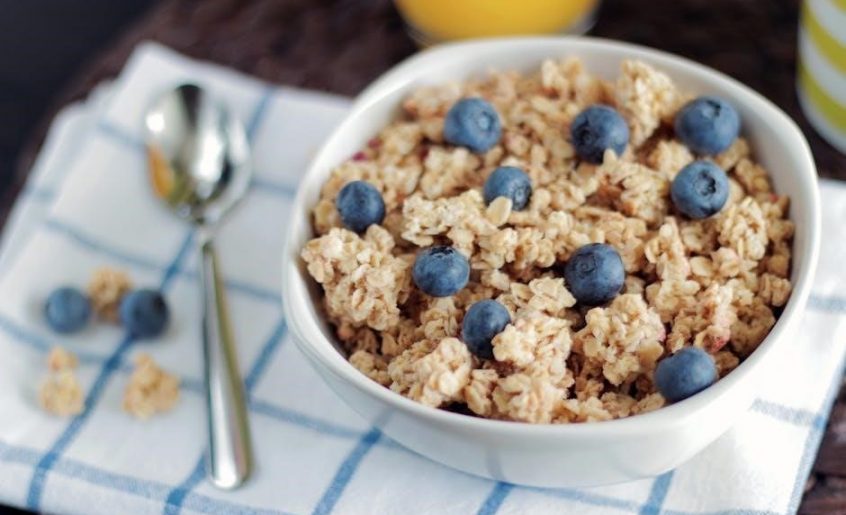Welcome to your comprehensive 7-day meal plan, tailored to fuel athletic performance and recovery. This guide provides balanced, nutrient-rich meals designed to optimize energy, strength, and overall health.
Importance of Nutrition for Athletic Performance
Nutrition plays a critical role in athletic performance, serving as the foundation for energy production, recovery, and overall success. A well-structured diet ensures that athletes meet their macronutrient needs, optimizing carbohydrate stores for endurance, protein intake for muscle repair, and healthy fats for sustained energy. Proper fueling enhances physical output, accelerates recovery, and reduces the risk of injury or fatigue. Tailored meal plans, like the 7-day meal plan for athletes, are designed to address specific dietary requirements, ensuring peak performance during training and competition. By prioritizing nutrient-dense foods and maintaining optimal hydration, athletes can achieve their goals and maintain long-term health.
Structure and Goals of the Meal Plan
This 7-day meal plan is structured to provide athletes with a balanced and organized approach to nutrition. Each day is carefully designed to meet specific dietary needs, ensuring adequate macronutrient intake, hydration, and nutrient timing. The primary goals include optimizing energy levels, supporting muscle recovery, and enhancing overall performance. The plan is tailored to varying caloric needs, typically around 2,300 calories per day, adjustable based on individual factors like age, weight, and training intensity. By focusing on whole, nutrient-dense foods, the meal plan aims to promote sustained energy, reduce fatigue, and foster long-term health. It also emphasizes flexibility, allowing athletes to adapt meals according to personal preferences and dietary requirements while maintaining a focus on peak performance.

Key Principles of the Meal Plan

The plan emphasizes balanced macronutrients, proper meal timing, and hydration. It prioritizes nutrient-dense foods and adjusts caloric intake based on individual training demands and goals to optimize performance.
Macronutrient Balance: Carbohydrates, Proteins, and Fats
Achieving the right balance of carbohydrates, proteins, and fats is crucial for athletes. Carbohydrates provide energy for workouts, proteins support muscle repair and growth, and fats aid in hormone production. A typical ratio is 50% carbs, 25% protein, and 25% fats. Adjustments may be needed based on specific training goals, such as increasing protein for muscle-building or carbs for endurance. The plan ensures each meal is tailored to meet these macronutrient targets, optimizing performance and recovery. Proper balance prevents energy crashes and supports overall health, making it a cornerstone of the meal plan’s success.
Meal Timing and Frequency
Meal timing and frequency play a vital role in an athlete’s nutrition plan. Eating smaller, balanced meals throughout the day helps maintain energy levels and supports muscle recovery. The ideal approach is to divide the diet into 4-5 meals, including breakfast, mid-morning snacks, lunch, afternoon snacks, dinner, and sometimes a late-night snack. Timing meals around training sessions is also crucial: a pre-workout meal 1-3 hours before training and a post-workout meal within 30-60 minutes after exercise are recommended. This structure ensures a steady supply of nutrients, prevents energy crashes, and aids in muscle repair. For example, breakfast might include oatmeal with fruits, while a post-workout snack could be a protein shake or nuts. Consistent meal timing supports overall performance and recovery, making it a key component of the meal plan.

Hydration and Electrolyte Intake
Proper hydration and electrolyte balance are essential for athletic performance and recovery. Athletes should aim to drink plenty of water throughout the day, with a goal of at least 8-10 glasses daily. Electrolytes, such as sodium, potassium, and magnesium, play a crucial role in maintaining fluid balance and nerve function. These can be replenished through electrolyte-rich foods like bananas, nuts, and avocados, or via sports drinks during intense workouts. Hydration should be timed strategically: drink water before, during, and after training sessions to prevent dehydration. Additionally, monitoring urine color can help gauge hydration levels—pale yellow indicates proper hydration. For high-intensity activities, consider incorporating electrolyte supplements or coconut water to replenish lost salts. Staying hydrated not only enhances performance but also supports overall bodily functions and recovery, making it a cornerstone of the meal plan.
Caloric Needs Based on Training and Goals
Athletes’ caloric needs vary based on training intensity, duration, and specific goals. The meal plan averages 2,300 calories per day but can be adjusted to suit individual requirements. For instance, endurance athletes may require more carbohydrates for energy, while strength trainers need adequate protein to support muscle repair. Caloric intake should align with training phases: higher during intense periods and slightly reduced during recovery. Factors such as age, weight, and body composition goals also influence calorie needs. The plan emphasizes flexibility, allowing adjustments to macronutrient ratios and portion sizes. By tailoring caloric intake to match training demands, athletes can optimize performance, recovery, and overall progress. This approach ensures the meal plan remains personalized and effective for diverse athletic objectives.

The 7-Day Meal Plan
This structured 7-day meal plan offers balanced, nutrient-rich meals tailored for athletes. Each day focuses on optimal energy, recovery, and hydration, ensuring a comprehensive approach to fueling athletic performance.
Day 1: Breakfast, Lunch, Snacks, and Dinner
Start your week with a nutrient-dense day focused on fueling performance and recovery. Breakfast includes oatmeal with bacon, providing complex carbs and protein. Lunch features a cheeseburger with a balanced mix of protein, carbs, and fats. Snacks include apple slices with peanut butter for sustained energy and a post-workout protein smoothie. Dinner consists of barbecued chicken with roasted vegetables, ensuring lean protein and fiber intake. This day emphasizes macronutrient balance, hydration, and whole foods to support athletic demands and overall health.
Day 2: Balanced Meals for Optimal Energy
Day 2 focuses on maintaining energy levels with balanced meals. Breakfast includes scrambled eggs with whole-grain toast and avocado, delivering protein and healthy fats. A mid-morning snack of Greek yogurt with mixed berries provides probiotics and antioxidants. Lunch features grilled chicken breast with quinoa and steamed vegetables, offering lean protein and complex carbs. A post-workout smoothie with protein powder, banana, and spinach supports recovery. Dinner consists of baked salmon with sweet potatoes and green beans, rich in omega-3 fatty acids and fiber. A light evening snack of cottage cheese with pineapple aids muscle recovery. This day emphasizes hydration with water and electrolyte-rich beverages, ensuring optimal performance and recovery.
Day 3: High-Protein and Complex Carbohydrate Focus
Day 3 emphasizes high-protein and complex carbohydrate intake to support muscle repair and sustained energy. Breakfast includes protein-infused oatmeal with almond butter and fresh berries. A mid-morning snack of hard-boiled eggs and whole-grain crackers provides a protein boost. Lunch features a grilled turkey breast wrap with whole-grain tortilla, spinach, and cucumber, paired with a side of quinoa salad. A post-workout smoothie with protein powder, banana, and peanut butter aids recovery. Dinner consists of baked cod with roasted sweet potatoes and steamed broccoli, offering lean protein and complex carbs. An evening snack of a protein bar or Greek yogurt with honey supports overnight muscle repair. Stay hydrated with water and electrolyte-rich beverages to maintain optimal performance and recovery throughout the day.

Day 4: Recovery and Refueling
Day 4 focuses on recovery and refueling with nutrient-dense meals to repair muscles and replenish energy stores. Breakfast includes scrambled eggs with spinach, whole-grain toast, and avocado. A mid-morning snack of Greek yogurt with mixed berries and honey provides natural sugars and protein. Lunch features grilled chicken breast with quinoa and steamed vegetables, offering lean protein and complex carbs. A post-workout smoothie with protein powder, frozen mango, and almond milk aids recovery. Dinner consists of baked salmon, sweet potato wedges, and sautéed green beans, delivering omega-3 fatty acids and sustained energy; End the day with a casein protein shake or cottage cheese for overnight muscle repair. Stay hydrated with water and electrolyte-rich beverages to support recovery and performance.
Day 5: Performance-Enhancing Meals
Day 5 is designed to boost energy levels and enhance endurance for peak performance; Start with a high-protein breakfast of eggs, turkey bacon, and whole-grain pancakes. A mid-morning snack of apple slices with almond butter provides sustained energy. Lunch features grilled chicken breast with brown rice and mixed vegetables, ensuring a balance of carbs and protein. A post-workout recovery shake with whey protein, banana, and almond milk helps replenish glycogen stores. Dinner includes baked cod, quinoa, and roasted asparagus, offering omega-3 fatty acids and complex carbs. Incorporate electrolyte-rich beverages like coconut water to maintain hydration. This meal plan focuses on optimizing macronutrient intake to fuel workouts and support muscle function, ensuring you’re ready to perform at your best.
Day 6: Carb-Loading and Hydration
Day 6 focuses on carb-loading to maximize glycogen stores for optimal performance. Start with a hearty breakfast of oatmeal topped with berries and a drizzle of honey, paired with a scrambled egg. A mid-morning snack of whole-grain toast with avocado and a banana maintains energy levels. Lunch includes quinoa salad with grilled chicken, mixed vegetables, and a vinaigrette dressing. A post-workout smoothie with Greek yogurt, mango, and chia seeds replenishes nutrients. Dinner features baked sweet potatoes with lean ground turkey and steamed broccoli. Hydration is emphasized with electrolyte-rich beverages like coconut water or sports drinks. Snacks such as rice cakes with peanut butter and a sprinkle of sea salt provide sustained energy. This day ensures you’re fueled and hydrated for peak performance while maintaining a balanced intake of macronutrients.
Day 7: Light and Nutrient-Dense Options
Day 7 emphasizes light, nutrient-dense meals to support recovery and maintain energy levels without overloading. Breakfast includes Greek yogurt with mixed berries and a sprinkle of granola, alongside a green smoothie. A mid-morning snack of apple slices with almond butter provides sustained energy. Lunch features grilled chicken salad with mixed greens, cherry tomatoes, and a light vinaigrette. A post-workout snack of rice cakes with hummus and a handful of mixed nuts replenishes nutrients. Dinner includes baked salmon with quinoa and steamed asparagus, focusing on lean protein and complex carbs. Hydration remains key, with herbal teas and water throughout the day. This final day ensures a balanced intake of macronutrients, supporting overall health and recovery while keeping meals light and satisfying.

Additional Tips for Success
Meal prepping and hydration are key.
Track your progress and adjust as needed.
Incorporate recovery foods and supplements for optimal performance.
Stay consistent and listen to your body.
Meal Prepping and Organization
Meal prepping is essential for maintaining consistency with your 7-day meal plan. Dedicate time each week to prepare meals in advance, ensuring you have healthy options readily available. Use containers to portion out meals and snacks, making it easier to grab what you need on busy days. Plan your shopping list based on the meal plan to avoid last-minute, unhealthy purchases. Organization is key to sticking with the plan, so label and date your prepped meals for convenience. This approach not only saves time but also helps maintain focus on your training and recovery goals.
Tracking Progress and Adjustments
Tracking your progress is crucial to ensure the meal plan aligns with your athletic goals and needs. Use a food diary or mobile app to monitor your daily intake, weight, energy levels, and performance metrics. Regularly assess how your body responds to the meals, noting any changes in recovery, endurance, or muscle growth. Adjust portion sizes or macronutrient ratios based on your progress, and consult with a sports dietitian if needed. Pay attention to how your body feels during training and competition, as this feedback is invaluable for fine-tuning your nutrition strategy. Consistent tracking allows for timely adjustments, ensuring the meal plan remains effective and tailored to your evolving needs as an athlete.
Incorporating Supplements and Recovery Foods
In addition to your structured meal plan, incorporating the right supplements and recovery foods can enhance your performance and aid in muscle repair. Protein shakes, creatine, and omega-3 fatty acids are popular choices among athletes to support muscle growth and reduce inflammation. Recovery foods like lean proteins, complex carbohydrates, and antioxidant-rich options such as berries and leafy greens should be prioritized post-workout. Timing is key—consume a recovery meal or shake within 30-60 minutes after training to replenish energy stores and promote healing. However, always consult a sports dietitian or healthcare professional before adding new supplements to your regimen. Personalizing your recovery strategy ensures it aligns with your specific goals and health needs. By combining a balanced diet with strategic supplementation, you can optimize your recovery and performance.
A well-structured 7-day meal plan is essential for athletes to fuel performance and recovery. Consistency and adaptability are key to achieving optimal results, ensuring nutrition remains a cornerstone of athletic success.
Importance of Consistency and Adaptation
Consistency in following a 7-day meal plan is crucial for athletes, as it ensures a steady supply of nutrients for performance and recovery. Regular eating habits help maintain energy levels, support muscle repair, and prevent fatigue. However, adaptability is equally important, as nutritional needs can vary based on training intensity, weight goals, and recovery requirements. Athletes should monitor their progress and adjust the meal plan to align with their changing needs. For example, increasing carbohydrate intake before high-intensity workouts or boosting protein consumption during recovery phases. By combining consistency with flexibility, athletes can optimize their nutrition strategy to achieve peak performance and long-term success.
Final Thoughts on Fueling for Success
Fueling your body with the right foods is the cornerstone of athletic success. A well-structured 7-day meal plan ensures you meet your energy needs, supports recovery, and enhances performance. By focusing on balanced macronutrients, proper hydration, and timing, you create a foundation for peak physical function. Remember, nutrition is a long-term investment in your health and performance. Stay consistent, adapt as needed, and trust the process. With dedication, this meal plan will help you achieve your goals and unlock your full potential as an athlete. Prioritize whole, nutrient-dense foods, and don’t hesitate to seek personalized adjustments to refine your strategy further. Your body—and your performance—will thank you.
